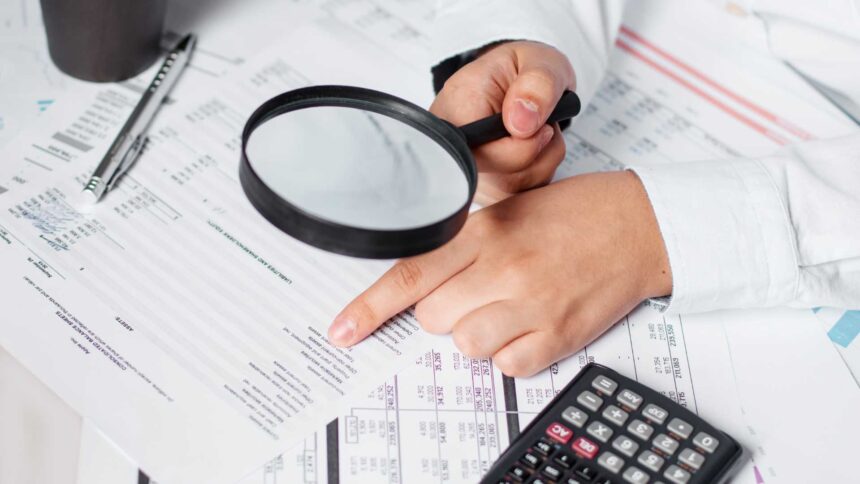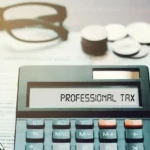Welcome to our comprehensive guide on essential documentation for conducting an income tax audit. Whether you are an individual taxpayer or a business owner, proper documentation is crucial in ensuring a smooth and successful audit process. In this blog post, we will discuss the importance of maintaining organized records, provide tips on preparing documents before an audit, offer advice on maintaining accurate records throughout the year, address common pitfalls and mistakes, and emphasize the benefits of working with a tax professional. By following these guidelines, you can be well-prepared for any potential income tax audits and minimize stress during the process.
I. Understanding the Purpose of an Income Tax Audit:
An income tax audit is an examination of an individual’s or business’s tax return to verify its accuracy and compliance with tax laws. The primary objective of an audit is to ensure that taxpayers are reporting their income correctly and claiming legitimate deductions and credits. The Internal Revenue Service (IRS) or other tax authorities select individuals or businesses for an audit based on various factors, such as discrepancies in reported income, high deductions, or random selection. It is essential to understand the purpose of an audit and be prepared by maintaining proper documentation.
II. Preparing Documents Before the Audit:
Before an audit, it is crucial to gather and organize all the necessary documents that may be requested by the tax authorities. Here is a checklist of essential documents to consider:
1. Personal Identification Documents: Keep your social security number, ID, and any other identification documents readily available.
2. Previous Tax Returns and Supporting Schedules: Obtain copies of your past tax returns, including all supporting schedules and attachments. These documents provide a historical perspective and context for your current tax return.
3. Income Statements: Gather all income statements, such as W-2s, 1099s, and other forms that report your earnings. Ensure that these documents match the income reported on your tax return.
4. Receipts for Deductions and Expenses: Keep receipts for all deductions and expenses claimed on your tax return, such as medical expenses, charitable donations, and business expenses. These receipts serve as evidence to support your deductions.
5. Bank Statements and Financial Records: Maintain bank statements and financial records that show your income and expenses throughout the year. These records help validate the accuracy of your reported income and deductions.
6. Business Records (if applicable): If you are a business owner, gather all relevant business records, including sales receipts, invoices, payroll records, and financial statements. These documents are crucial for verifying your business income and expenses.
To make the audit process more manageable, organize these documents in a logical and easily accessible manner. Consider using folders or digital storage solutions to keep everything well-structured and readily available during the audit.
III. Maintaining Accurate Records Throughout the Year:
Proper recordkeeping throughout the year is key to ensuring that you have all the necessary documentation when an audit occurs. Here are some tips to help you maintain accurate records:
1. Keep Track of Financial Transactions: Record all financial transactions, such as income received, expenses incurred, and any other financial activities relevant to your tax return. This includes both personal and business transactions.
2. Use Technology Tools: Utilize accounting software or mobile apps to simplify recordkeeping. These tools can automate data entry, track expenses, and generate reports, making it easier to stay organized.
3. Save Electronic Copies: Instead of relying solely on paper receipts, consider scanning them or saving electronic copies. This helps reduce clutter and ensures that you have backup copies in case the original receipts are lost or damaged.
By maintaining accurate records throughout the year, you can easily access the necessary information during an audit and provide accurate and timely responses to any inquiries from tax authorities.
IV. Addressing Common Pitfalls and Mistakes:
Preparing for an income tax audit can be daunting, but by avoiding common pitfalls and mistakes, you can navigate the process more smoothly. Here are some common mistakes to be aware of and tips to avoid them:
1. Incomplete Records: Failing to maintain complete records is one of the most significant mistakes individuals make. Ensure that you have all the necessary documentation to support your reported income, deductions, and credits.
2. Missing Documentation: Keep track of all the documents required for an audit, as outlined in section II. Missing documentation can lead to delays or disputes during the audit process.
3. Incorrect Calculations: Double-check all calculations on your tax return to avoid errors. Incorrect calculations can raise red flags and trigger further scrutiny by tax authorities.
4. Lack of Understanding: Be aware of tax laws and regulations that apply to your situation. Seek guidance from tax professionals or use reliable tax resources to ensure compliance.
If you encounter challenges or are unsure about any aspect of an income tax audit, consider seeking professional advice. Tax professionals can provide valuable insights, help organize your documents, and represent you during the audit process.
V. Working with a Tax Professional:
Working with a tax professional can alleviate the stress and complexity of an income tax audit. Here are some benefits of seeking assistance from a tax professional:
1. Expertise and Knowledge: Tax professionals have a deep understanding of tax laws and regulations. They can interpret complex tax rules, identify potential issues, and provide guidance tailored to your specific circumstances.
2. Organization and Preparation: Tax professionals can assist you in organizing your documents, ensuring that you have all the necessary information for an audit. They can also help you prepare responses to any inquiries from tax authorities.
3. Representation: If necessary, tax professionals can represent you during the audit process. They can communicate with tax authorities on your behalf, handle negotiations, and help resolve any disputes that may arise.
Conclusion:
Maintaining proper documentation is essential for a successful income tax audit. By understanding the purpose of an audit, preparing documents in advance, maintaining accurate records throughout the year, and avoiding common pitfalls, you can be well-prepared for any potential audits. Additionally, consider working with a tax professional who can provide expertise, assist with document organization, and represent you during the audit process. With the right preparation and support, income tax audits can be manageable experiences. Start organizing your documents today and ensure that you are ready for any potential audits that may come your way.




